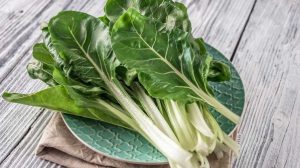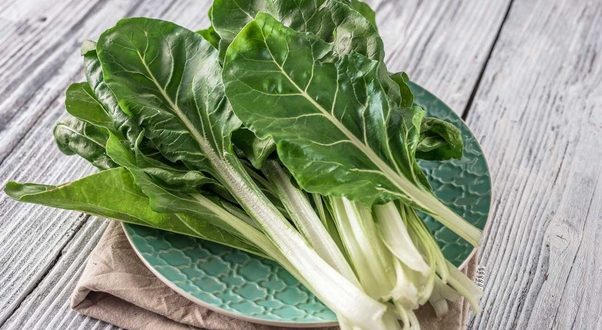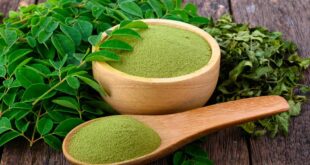What are the foods to eat to make the heart stronger and avoid a stroke?
To maintain a healthy heart and reduce the risk of stroke, it is essential to consume foods that support cardiovascular health. A heart-healthy diet focuses on improving blood circulation, reducing blood pressure, lowering cholesterol levels, and preventing inflammation, all of which are critical factors in preventing heart disease and strokes. Here is a detailed list of foods that contribute to a stronger heart and reduced risk of stroke:

1. Fruits and Vegetables (Rich in Antioxidants and Fiber)
- Berries (Blueberries, strawberries, raspberries): Berries are rich in antioxidants such as anthocyanins, which help reduce inflammation and oxidative stress, both of which contribute to heart disease.
- Leafy Greens (Spinach, kale, Swiss chard): These vegetables are packed with vitamins, minerals (such as magnesium and potassium), and nitrates, which help regulate blood pressure and improve blood flow.
- Citrus Fruits (Oranges, grapefruits, lemons): High in vitamin C and flavonoids, citrus fruits improve blood vessel function and may lower the risk of stroke.
- Avocados: A great source of monounsaturated fats, avocados help lower bad cholesterol (LDL) while increasing good cholesterol (HDL), supporting heart health.
2. Whole Grains (Rich in Fiber)
- Oats, brown rice, whole wheat, quinoa, and barley: These whole grains are high in dietary fiber, which helps regulate cholesterol levels by reducing the absorption of cholesterol in the bloodstream. The soluble fiber in oats is especially effective in lowering LDL cholesterol.
- Legumes (Lentils, beans, chickpeas): Legumes are high in both fiber and protein, and they help reduce blood pressure, cholesterol levels, and inflammation.
3. Healthy Fats (Omega-3 Fatty Acids)
- Fatty Fish (Salmon, mackerel, sardines, trout): These fish are excellent sources of omega-3 fatty acids, which reduce inflammation, decrease triglycerides, and improve heart function.
- Nuts and Seeds (Walnuts, flaxseeds, chia seeds): Walnuts contain omega-3 fatty acids and are known to reduce inflammation, improve cholesterol profiles, and reduce oxidative stress. Flaxseeds and chia seeds are also good plant-based sources of omega-3s.
4. Healthy Oils
- Olive Oil (Extra Virgin): Olive oil is a key component of the Mediterranean diet and is rich in heart-healthy monounsaturated fats. It helps lower LDL cholesterol and has anti-inflammatory properties, improving heart health.
- Canola Oil and Flaxseed Oil: Canola oil contains lower levels of saturated fats and a healthy amount of omega-3s, which can improve heart function.
5. Lean Proteins
- Skinless Poultry and Lean Meats: Choosing lean cuts of meat can help reduce the intake of saturated fats, which are harmful to heart health.
- Tofu and Soy Products: These plant-based protein sources are low in fat and rich in polyunsaturated fats, which help improve cholesterol levels and reduce the risk of heart disease.
6. Foods Rich in Potassium
- Bananas, sweet potatoes, tomatoes, and spinach: Potassium helps control blood pressure by balancing out the negative effects of sodium. Maintaining normal blood pressure is crucial in preventing strokes.
- Low-fat dairy products (Milk, yogurt): Dairy is a good source of potassium and calcium, which can also support healthy blood pressure levels.
7. Dark Chocolate (In Moderation)
- Dark chocolate with at least 70% cocoa content contains flavonoids, which help improve blood vessel function, lower blood pressure, and reduce the risk of heart disease.
8. Herbs and Spices (Instead of Salt)
- Turmeric: Curcumin, the active compound in turmeric, has powerful anti-inflammatory and antioxidant effects, which may help prevent heart disease.
- Garlic: Garlic contains allicin, a compound known to help reduce blood pressure and cholesterol levels. Regular consumption of garlic may reduce the risk of heart disease and stroke.
9. Green Tea
- Green tea contains catechins, antioxidants that improve cholesterol levels, enhance heart function, and reduce inflammation. Drinking green tea regularly has been associated with a lower risk of heart attack and stroke.
10. Legumes and Soy
- Beans, lentils, chickpeas: These are great sources of protein, fiber, and nutrients like folate, which are important for heart health. Soy products, like tofu, are also beneficial in lowering cholesterol.
Foods to Avoid:
- Processed Foods: Packaged snacks, processed meats, and fast foods contain high levels of sodium, trans fats, and preservatives that increase the risk of heart disease.
- Sugary Drinks: Excessive sugar intake leads to obesity, insulin resistance, and inflammation, all of which can damage the cardiovascular system.
- High Sodium Foods: Salt contributes to high blood pressure, a major risk factor for heart disease and stroke. Limit processed and packaged foods that are high in sodium.
Key Guidelines for a Heart-Healthy Diet:
- Eat a Variety of Nutrient-Rich Foods: A wide range of fruits, vegetables, whole grains, and lean proteins ensures you’re getting the vitamins, minerals, and antioxidants needed for heart health.
- Limit Saturated and Trans Fats: Choose healthier fats, such as those from olive oil, fatty fish, and nuts, while avoiding fried and processed foods that contain trans fats and high levels of saturated fats.
- Moderate Sodium Intake: Keeping salt consumption low helps maintain healthy blood pressure levels.
- Stay Hydrated: Drink plenty of water and limit sugary beverages, which can contribute to obesity and heart disease.
Conclusion:
A balanced diet rich in fruits, vegetables, whole grains, lean proteins, healthy fats, and low in processed foods, sugar, and salt will strengthen your heart and reduce the risk of stroke. Paired with regular exercise, maintaining a healthy weight, and avoiding smoking, this type of diet can have a profound impact on cardiovascular health.
 Gistfox Your News Window To The World
Gistfox Your News Window To The World 




